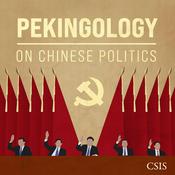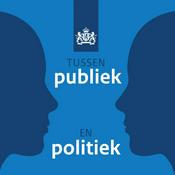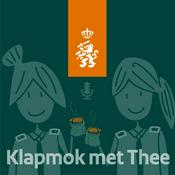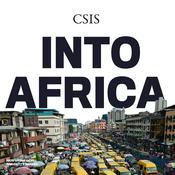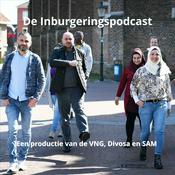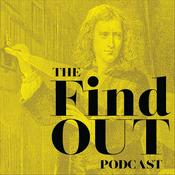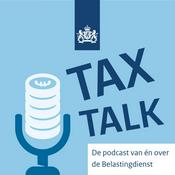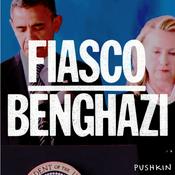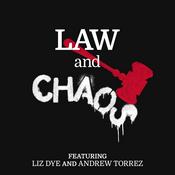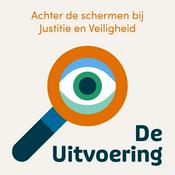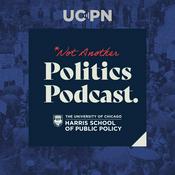Beschikbare afleveringen
5 van 39
- Who's Afraid of Gender: Entitled Podcast LiveWhy has gender—once a term of analysis and identity—become one of the most explosive political flashpoints of our time? From the halls of the United Nations to state legislatures across the United States, debates over gender and sexuality now shape elections, social movements, and international alliances.In this live episode of the "Entitled" podcast, hosts Claudia Flores and Tom Ginsburg sit down with Graeme Reid, U.N. Independent Expert on Sexual Orientation and Gender Identity, and Emily Bazelon, staff writer for The New York Times Magazine and senior research fellow at Yale Law School, to explore how gender has become a global battleground. Together, they’ll unpack the forces driving the backlash — from the rise of nationalist and religious movements to the politics of fear and control — and examine why gender has become a defining priority of the Trump administration and its international allies. Join us for a timely, provocative conversation about the past, present, and future of the global gender wars — and what’s really at stake when societies decide who gets to define gender itself. Hosted by Simplecast, an AdsWizz company. See pcm.adswizz.com for information about our collection and use of personal data for advertising.--------56:04
- Silencing the Special Procedures: Sanctions and the UN Human Rights SystemThis year, the US government has issued sanctions on a number of experts from the UN to the International Criminal Court for speaking out about human rights in Gaza. President Donald Trump authorized sanctions on the International Criminal Court (ICC) and its Chief Prosecutor Karim Khan with the goal of stopping the ICC from undertaking its independent mandate. UN experts strongly condemned the move, calling it “an attack on global rule of law."In this episode of Entitled, we discuss how sanctions are being used and abused by the Trump administration, and how other UN members are responding to the sanctioning of their colleagues for speaking out. Hosted by Simplecast, an AdsWizz company. See pcm.adswizz.com for information about our collection and use of personal data for advertising.--------28:56
- Is It Time To Rethink The Binary In Sports?When South African runner Caster Semenya dominated international competitions, sports authorities demanded she prove she was “really” a woman. The rules they created—targeting women with intersex traits or naturally higher testosterone—have since reshaped the future of women’s sports.In this episode of Entitled, we unpack the controversial regulations of World Athletics, the recent European Court of Human Rights ruling, and the wider human rights questions at stake. Are these policies about fairness—or about enforcing outdated ideas of gender? Hosted by Simplecast, an AdsWizz company. See pcm.adswizz.com for information about our collection and use of personal data for advertising.--------40:03
- What If Kings Are Good for Democracy?What does it mean when people start calling Donald Trump a king? And why are some political theorists — on both the right and left — exploring the possibility of leaving democracy behind? All this debate got co-host Tom Ginsburg thinking about an argument he’s been turning over in his head for years: could constitutional monarchy actually be the best form of government?Is it possible that constitutional monarchy actuallystrengthensdemocracy? Do monarchs serve as symbols of national unity that modern republics are missing? And is America’s obsession with political dynasties — the Obamas, the Bushes, the Kennedys — actually more monarchical than we’d like to admit?This wide-ranging conversation takes us from Thailand to the United Kingdom, from the founding ideals of the U.S. Constitution to the rise of populist leaders. Along the way, Tom and Claudia debate whether democracy is still holding strong — or if we’re inching toward something more authoritarian. Hosted by Simplecast, an AdsWizz company. See pcm.adswizz.com for information about our collection and use of personal data for advertising.--------35:43
- Why Mahmoud Khalil's Lawyer Is Losing Faith In The Justice SystemAs student protests over Gaza sweep college campuses, one case is testing the limits of free speech and immigration law in America. Mahmoud Khalil, a Columbia student and lawful permanent resident, was arrested by ICE without a warrant and sent to a remote detention center in Louisiana—allegedly for his political advocacy.In this episode, we sit down with Khalil's lawyer Baher Azmy, who is also the Legal Director of the Center of Constitutional Rights, to unpack the disturbing legal maneuver behind Khalil’s detention: a rarely used immigration clause that gives the Secretary of State near-total discretion to deport individuals deemed a “foreign policy risk.” What does this case reveal about the future of dissent and academic freedom? Hosted by Simplecast, an AdsWizz company. See pcm.adswizz.com for information about our collection and use of personal data for advertising.--------46:58
Meer Overheid podcasts
Trending Overheid -podcasts
Over Entitled
Rights matter, but conversations about rights can be polarizing, confusing and frustrating. Lawyers and law professors Claudia Flores and Tom Ginsburg have traveled the world getting into the weeds of global human rights debates. On Entitled, they use that expertise to explore the stories and thorny questions around why rights matter and what’s the matter with rights. Entitled is produced with the support of University of Chicago Law School and Yale Law School, and is part of the award winning University of Chicago Podcast Network.
Podcast websiteLuister naar Entitled, Binnenlands Bestuur en vele andere podcasts van over de hele wereld met de radio.net-app

Ontvang de gratis radio.net app
- Zenders en podcasts om te bookmarken
- Streamen via Wi-Fi of Bluetooth
- Ondersteunt Carplay & Android Auto
- Veel andere app-functies
Ontvang de gratis radio.net app
- Zenders en podcasts om te bookmarken
- Streamen via Wi-Fi of Bluetooth
- Ondersteunt Carplay & Android Auto
- Veel andere app-functies


Entitled
Scan de code,
download de app,
luisteren.
download de app,
luisteren.

